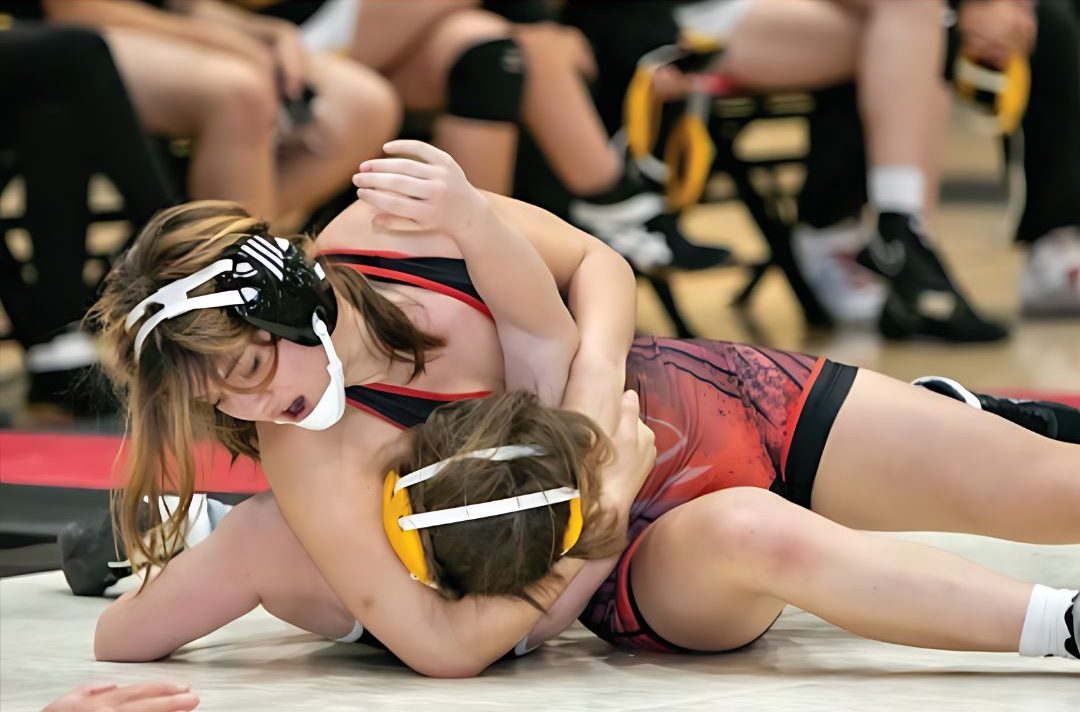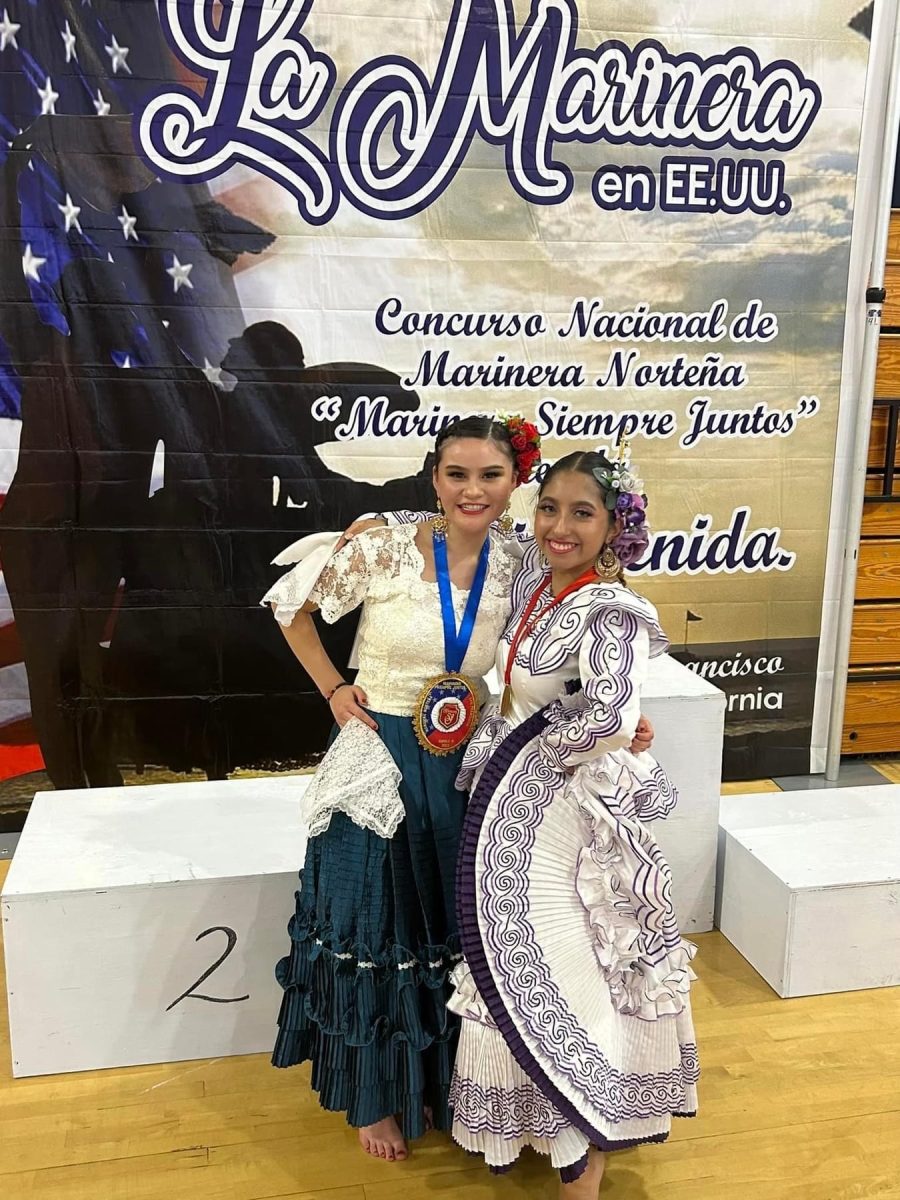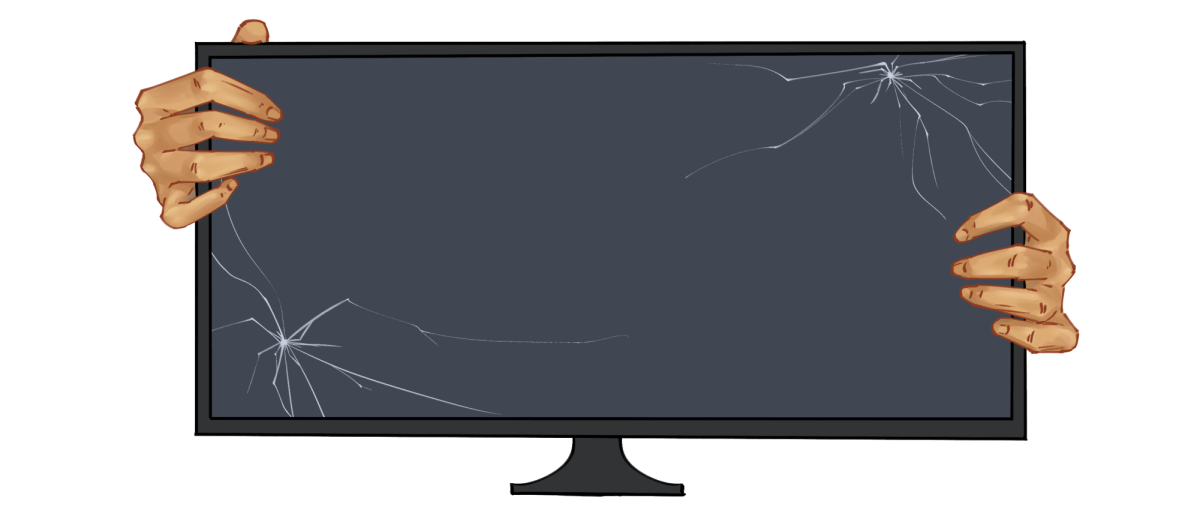Written by: Catalina Zhao, Erica Lee and Jean Wang
Courtesy photos by: Christine Yang, Rebecca Vincent and Jean Wang
Christine Yang:
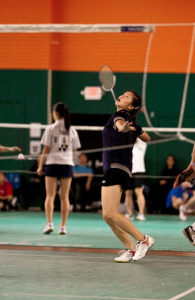 Among the general population, badminton is seen as a recreational sport. However, for the athletes who seriously train for the sport, there is much more that goes into mastering the sport, both mentally and physically. Freshman Christine Yang, who is a nationally ranked badminton player, understands this and has received recognition for her skills in competitions such as the Pan Am Junior Badminton Championships in 2011, where she won first place for girls’ singles.
Among the general population, badminton is seen as a recreational sport. However, for the athletes who seriously train for the sport, there is much more that goes into mastering the sport, both mentally and physically. Freshman Christine Yang, who is a nationally ranked badminton player, understands this and has received recognition for her skills in competitions such as the Pan Am Junior Badminton Championships in 2011, where she won first place for girls’ singles.
To improve her techniques, Yang trains at the California Badminton Academy in Fremont for six days a week. Yang’s coach Bob Malaythong believes that Yang is a good role model for other players. “She is a student of the game, which I think other badminton players should try to achieve [in order] to understand the game and how it is supposed to be played,” Malaythong said.
To attain awards of such high prestige, Yang undergoes a lot of training. “It takes a lot of energy away,” Yang said. “It is not only physically tiring, but also mentally tiring. A lot of people would not agree with that because they have not experienced it, and they think it’s a backyard sport.” Strategies are also crucial because all of Yang’s opponents are talented. During tournaments, Yang uses intimidation and maintains a poker face to look confident in her abilities.
According to Yang, being in the limelight of the badminton world is not always as incredible as it seems. Once a player reaches the top, there is pressure to stay there. “Even if they are your best friends, everyone wants to take you down,” Yang said.” Due to her busy schedule, Yang finds it hard to spend time with her friends outside of school. “I really don’t have a social life,” Yang said. “I mean I have a lot of friends here, but a lot of the times I feel out of the circle since I can’t go hang out because I have practice.”
Even with all the stress, Yang still enjoys the sport. “The best moment is when you play someone a lot better than you, and at first they don’t think highly of you and then they realize that you’re good,” Yang said. “The best feeling is when you win a game no one expects you to win and you cry out of happiness.” On the sidelines, her parents and coaches act as moral support. “My two coaches are probably my best friends,” Yang said. “[My coaches] know, because they have experienced the same things when they were younger and know the pressure when they were in Nationals.”
The sacrifices that Yang has made for badminton have earned her respect. “Christine is an extremely hard worker.” Yang’s other coach Raju Rai said. “Not only does she put in the time and effort, the knowledge she has of the game is extraordinary especially at her age. She aims to be the best and to perfect her craft. Hopefully one day she will be one of the top players in the world.”
While badminton has taught Yang discipline and perseverance, most importantly, Yang has been able to learn about herself. “I really like [badminton] a lot because it has developed my personality a lot because I understand how I play and how I deal with myself,” she said.
Rebecca Vincent:
To most, rock climbing is a recreational sport reserved for occasional excursions to the gym, but to sophomore Rebecca Vincent, who is nationally ranked in bouldering, a type of rock climbing, it is an intense sport that requires a precise combination of strength, control and concentration. “Bouldering is both a physical and mental challenge,” Vincent’s coach Isaac Williams wrote in an email. “It requires excellent problem solving skills and the ability to think out of the box.”
Competitive rock climbing has two distinct seasons involving two different styles of rock climbing, with bouldering in the fall and sport climbing in the spring. Bouldering, in which Vincent recently competed nationally, involves short climbs over a mat with no ropes or harnesses. Competitors are given a chance to complete an unfamiliar climb in four minutes, with points awarded based on how far they have climbed in that time. The main challenge is that competitors are not allowed to look at the climb before they attempt it for their first time. “It’s really helped me focus on things because you’re faced with a climb you have to do on your first try,” she said. “If you’re distracted, you’re not going to get very far.”
Vincent was first introd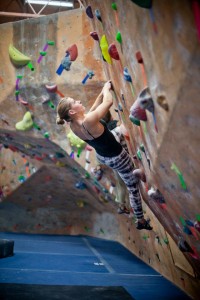 uced to rock climbing when she was only six. She joined Twisters when she was nine after attending team practices on Friday as the regular classes overlapped with gymnastics. After Twisters closed in December 2010, she joined Planet Granite. While Vincent’s background in gymnastics helped her start out strong in rock climbing, it was her work ethic that led her to obtain the level of achievement she has reached today. “I think Rebecca owes her success to continuing to work when others fall by the wayside,” Williams wrote. “She maintains consistent attendance and always tries hard at whatever she does.” This level of commitment led Vincent to practice three hours a day, four days a week, in preparation for Bouldering Nationals earlier this year.
uced to rock climbing when she was only six. She joined Twisters when she was nine after attending team practices on Friday as the regular classes overlapped with gymnastics. After Twisters closed in December 2010, she joined Planet Granite. While Vincent’s background in gymnastics helped her start out strong in rock climbing, it was her work ethic that led her to obtain the level of achievement she has reached today. “I think Rebecca owes her success to continuing to work when others fall by the wayside,” Williams wrote. “She maintains consistent attendance and always tries hard at whatever she does.” This level of commitment led Vincent to practice three hours a day, four days a week, in preparation for Bouldering Nationals earlier this year.
At Nationals, a custom-built wall is set up in a theater-like format for spectators to watch. “Bouldering Nationals is very stressful for competitors,” Williams wrote. “Competitors show up at isolation very early in the morning, they sit in isolation for hours, and then all at once, it is their turn to go out and sit with their backs turned away from their climbs.” The first day of the competition involved four climbs with four minute rests in between. Vincent placed 17th, ensuring her a spot in the next day’s round, where she placed 13th, just barely missing the cutoff for finals.
Vincent is currently practicing for the upcoming sport climbing season, which involves a rope and longer climbs. “I felt like I could have done better at the [National] competition,” Vincent said. “So this year for sport climbing, I will.”
Aaron Ong:
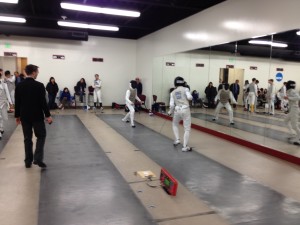 Mask on, foil in hand. His eyes analyze his opponent’s every move and his mind calculates his next step. His feet carry him nimbly around the narrow arena strip. He lunges forward and hits his target’s upper torso. Success!
Mask on, foil in hand. His eyes analyze his opponent’s every move and his mind calculates his next step. His feet carry him nimbly around the narrow arena strip. He lunges forward and hits his target’s upper torso. Success!
Three years ago, sophomore Aaron Ong, now a nationally ranked fencer, began fencing for fun. “As a kid, I really liked sword fighting, and fencing is the closest thing you can get to that,” he said. After joining a fencing outreach program at Terman Middle School, Ong began taking lessons at the Cardinal Club and later moved to his current club, Silicon Valley Fencing Center.
Since then, Ong has competed for almost two years at about 30 different tournaments, such as the 2011 Summer Nationals. He attends both national and local competitions in the U-16 and U-19 age divisions, and the E rank division, which is the fourth out of five classifications given by the United States Fencing Association (USFA) for performance and experience. According to Ong, the highlight of his career so far has been placing 17th out of 100 at his most recent tournament, the North American Cup. “There were fencers from all over North America, like Mexico and Canada, and that was my best performance,” he said.
To improve, Ong looks to other fencers as his role models. “There are many Olympic caliber fencers in the Bay Area and I respect all of them,” he said. “They’re great fencers. I can learn a lot by watching their technique.”
In order to maintain his skill and physique, Ong dedicates his time to fencing, training and working on technique. “Aaron is very focused and works hard toward his goal,” Ong’s coach Aleksei Murugin said. Ong’s training consists of conditioning, footwork, drills with the foil and practice with others. “It takes up a lot of his time and he’s always really busy,” sophomore Andrew Chan, one of Ong’s friends, said. “But fencing helps his confidence and perseverance, so it’s worth it.”
According to Ong, the most rewarding part of fencing is the growth that the sport has brought him. “It’s given me something I look forward to,” Ong said. “It’s a way to exercise, make bonds [and it] allows you to discover things about yourself and develop your personality.” Now he is more confident, is able to analyze situations more deeply and has made friends from all age levels.
Ong hopes to fence in college and continue getting better to reach an A rank, the highest USFA classification. “There’s a lot of room to improve,” he said. “Overall, I need to get better at my technique and my speed.”
Although the sport has many benefits, his favorite aspect is fencing opponents. “The best part is when you’re in a bout,” he said. “You’re really into it, you’re focused and you’re only thinking about fencing.” In addition, he enjoys the sport’s nature, which motivates him to continue. “I like that it’s not just a physical sport,” Ong said. “There’s a lot of strategy behind it and you have to prep yourself mentally.”



